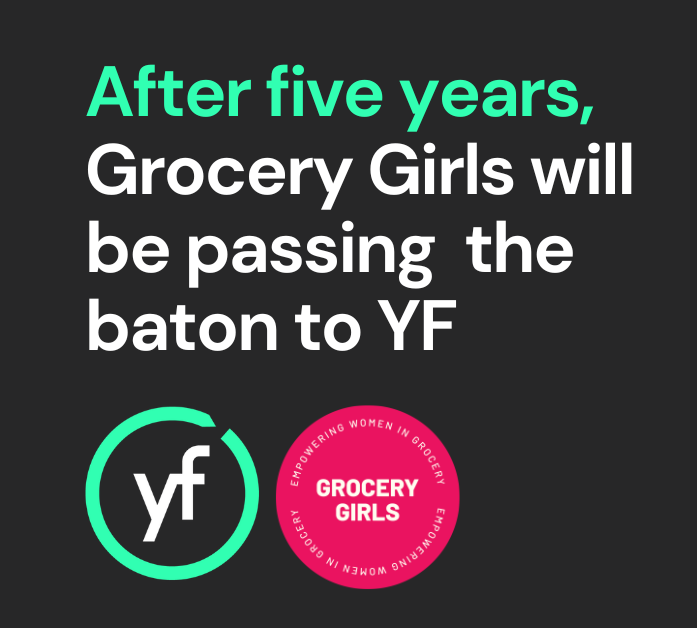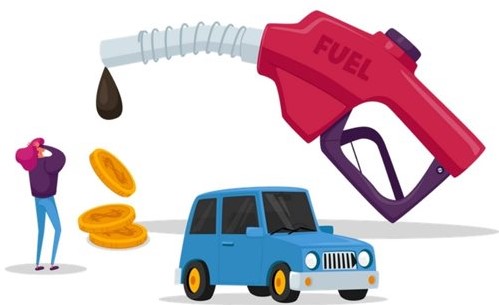
Subscribe to
YF mailing list
Subscribe today to keep informed of any important industry news and exclusive insights on how you can scale and strengthen your business.

The rising costs of fuel are already proving pretty calamitous.
Last month, global crude oil prices hit record highs of $120 (£94.90) per barrel. For individual households that meant cripplingly high costs for filling up at petrol stations, despite the government fuel duty cut. Energy bills were also at £760 in 2021 compared to £450 in 2020, a 36% real increase.
For businesses, these rising costs add yet another burden on already stretched budgets, alongside profits that have eroded after two years of a pandemic.
As a small food and drink business you will no doubt already be feeling the sting. Be it hikes to delivery costs for ecommerce orders, higher office overheads, or a spike in travel expenses from staff.
Experts anticipate that the current rising fuel costs could turn into a far longer-term problem. As these price rises filter through, so too will significant impacts on the global food and drink supply chain. Brands need to be prepared.
Already 71% of UK logistics companies say the cost of transporting goods has risen during Q1 2022. 44% say that increase is 25% or more. This is feeding through into freight rates too, with 60% of companies reporting increased air and international road freight rates, and half reporting the same increase for sea, domestic roads and rail. The trade body for UK wholesalers has already confirmed its members will pass on increased transportation costs to retail and restaurant consumers.
In short, transporting goods from A to B looks set to get much more expensive.
For a small food and drink business, like yours, all this could prove a multi-pronged upward pressure on budgets, with an impact on everything from the cost of importing ingredients, to the cost of delivery to end consumers. All which leaves you with the tricky dilemma of whether or not to pass on costs to UK households grappling with a cost of living crisis.
With all the signs pointing to a longer term increase in fuel costs, now is the time for small businesses to take action.
The key here is efficiency. For every gallon of fuel, are you delivering maximum value of product?
Here are four key questions to ask yourself:
Could domestic transport requirements be consolidated?
For example, could a longer lead time on deliveries reduce the necessary trips without significant impact on customer service?
Could better forecasting help reduce wasted trips?
Is excess inventory being shipped? Are additional trips currently being required due to inaccurate forecasts? How could this be improved? .
Could a more cost-effective transport type be used?
It is worth keeping a close eye here on how specific transport modes are being impacted. Many major retailers for instance are putting a big focus on rail as a cheaper (and more sustainable) mode of transport for logistics.
Are there opportunities for collaboration?
Any wasted space in a shipping container right now is a waste of cash. If your stock is not filling the available space then consider whether you could share resources with other businesses and jointly benefit from the reduced costs.
These are just a few suggestions for how you could ensure your business is prepared. But of course, it may be that your own individual requirements need a slightly different approach.
At YF, we have a dedicated Supply Chain Team that can help you understand exactly how the current fuel crisis could impact your company, and help you spot efficiencies that will mitigate any damage.
Our Supply Chain Team can support you in all sorts of ways – contact us at [email protected] for a no-obligation chat.
Would you like to be kept informed of any industry news, insights or updates about the YF Services? You can quickly subscribe to our newsletter here.
Subscribe to our mailing list to stay in touch with the latest news, insights and updates from YF.
Subscribe today to keep informed of any important industry news and exclusive insights on how you can scale and strengthen your business.
Our Preferred Suppliers are a selection of businesses that we have vetted and trust to recommend to our brands. We have negotiated discounts or deals with many of them.
Access to the list and discounts is a benefit to Community members only.
Not a member yet? Find out more here